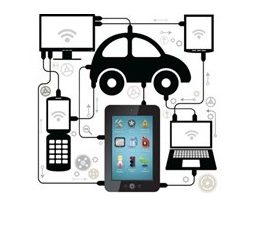PORTLAND, Ore. – A recent study, called the 2018 Travelers Risk Index, has revealed a disconnect, or gap, between what people perceive and what people actually do when it comes to distracted driving.
The study focused on distracted driving and the perception of risks among drivers and passengers, and shows that drivers tend to think they are less distracted than they really are while behind the wheel.
The Oregon Department of Transportation reports that from 2012-2016 there were 1,040 crashes involving a driver who was using a cell phone at the time of the crash. This resulted in 19 fatalities and 4,497 people injured.
Auto crashes have risen throughout the country, and as a result, insurance costs have gone up as well. Nationally, the average expenditure for auto insurance has climbed from $838 in 2013 to $889 in 2015, according toI.I.I.
While individual companies weigh rating factors differently, loss costs – payments made to treat injuries, repair damaged vehicles and property and defend insured drivers in legal actions – are typically reflected in premiums paid by consumers.
“What we’re seeing, especially with more vehicles on the road traveling for work and leisure, is a rise in crash rates, and as the cost to treat injuries and repair vehicles increases, those crashes are having an impact on the cost of insurance,” said Kenton Brine, NW Insurance Council President.
The 2018 Travelers Risk Index study revealed that 40% of drivers admitted to being distracted for 15 minutes per one hour behind the wheel. While 85% of drivers surveyed agreed that distracted driving is a major risk, nearly a quarter of them also said they drive while distracted and believe they can be safe doing so. The study also revealed that one in 10 respondents reported they were frequently distracted by technology while driving.
According to the Washington Traffic Safety Commission, it takes a driver 27 seconds to refocus on the road after using a smartphone while driving. At 25 mph, a vehicle can travel the length of three football fields, leaving plenty of time for a tragic crash.
To further deter drivers from distracted driving, Oregon’s new Distracted Driving Law took effect October 1, 2017 and brought tough new restrictions on the use of cellphones while driving, along with steep fines for violators. Those citations, as well as crashes caused by distracted driving, could impact what violators pay for auto insurance.
“Insurers also are now able to see if drivers have been cited for, or have caused a collision, while being distracted behind the wheel, which should serve as a wake-up call for drivers who think they can evade an accident, a ticket or insurance consequences,” Brine added.
Even with new laws in place, however, distracted driving – spurred by increased interaction with smartphones – has become one of the most dangerous hazards on roadways today.
The NW Insurance Council offers the following tips to help prevent distracted driving:
Distracted Driving Prevention
- Turn off your phone and put it in your glove box while you are driving to avoid the temptation of answering a call or text.
- If you’re a passenger, hold the driver’s phone.
- Don’t text or call a friend or loved one if you know they are driving.
- Add an “app” to your phone, or add a setting to your phone, to automatically reply to calls or messages telling the person by text that you are driving and will contact them when you are no longer behind the wheel.
- If using a GPS on your phone, plug in the address before you start the car and use a mounted phone holder.
- Talk to family members, especially teen drivers, about the risks of cell phone use. Model responsible behavior by not using your phone while driving.
- If you need to call or text someone while driving, ask a passenger to type the text or make the call. If you don’t have passengers, pull off the road in a safe location before using your phone.
- Don’t eat or drink while driving, and all personal grooming should be done at home and not while driving.
- Consider installing an app that can disable texting and hold calls while you’re driving.
Read more at: http://www.ktvz.com/news/study-many-distracted-drivers-think-they-arent/729269991











